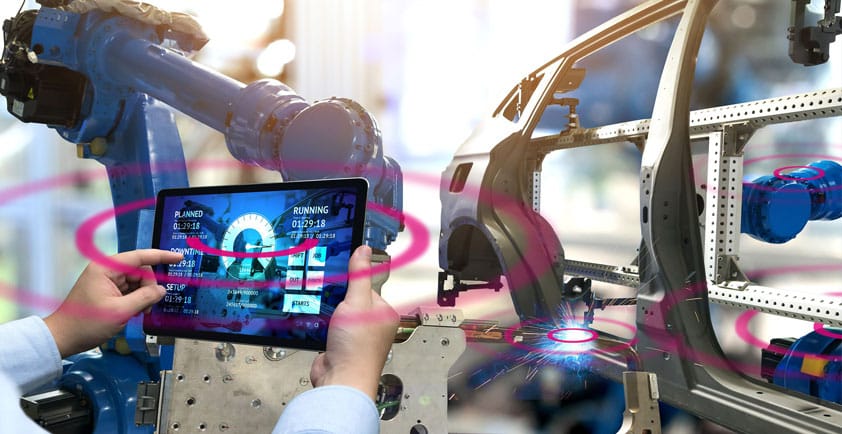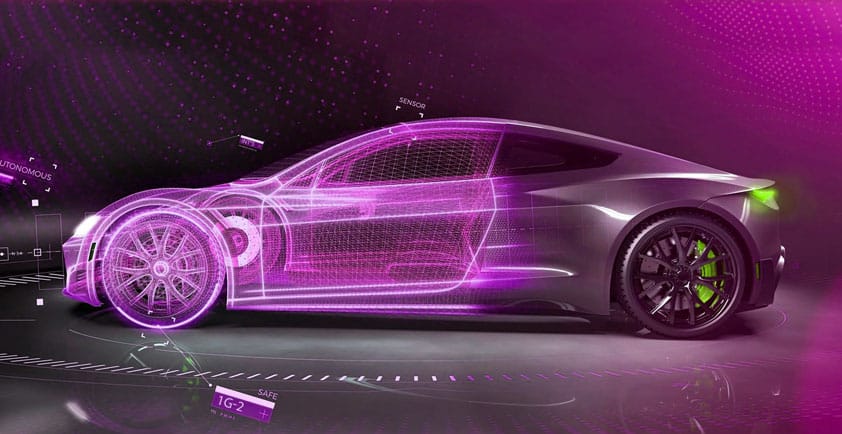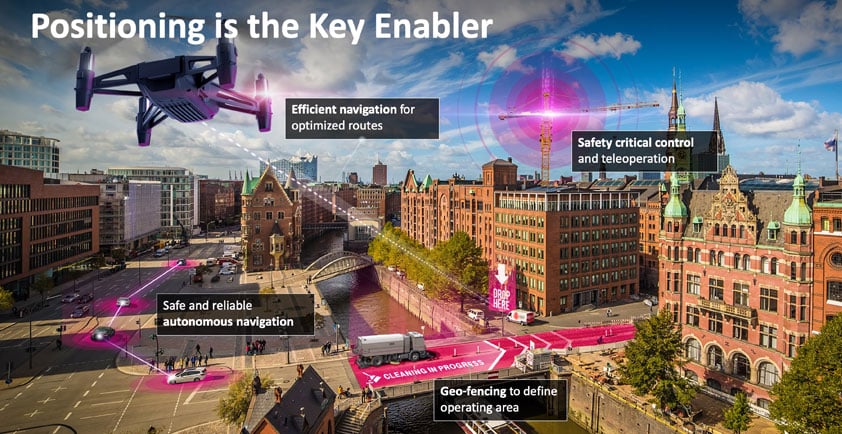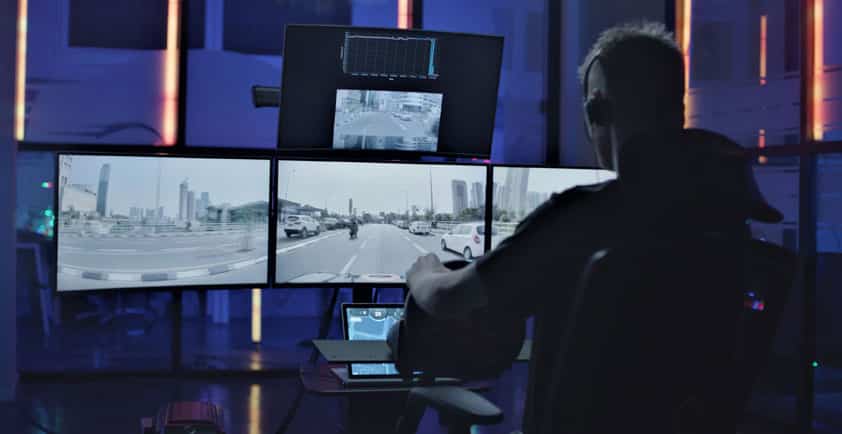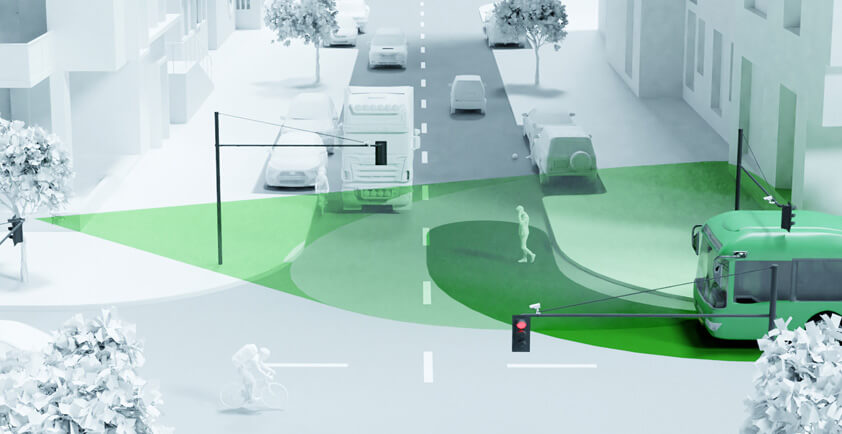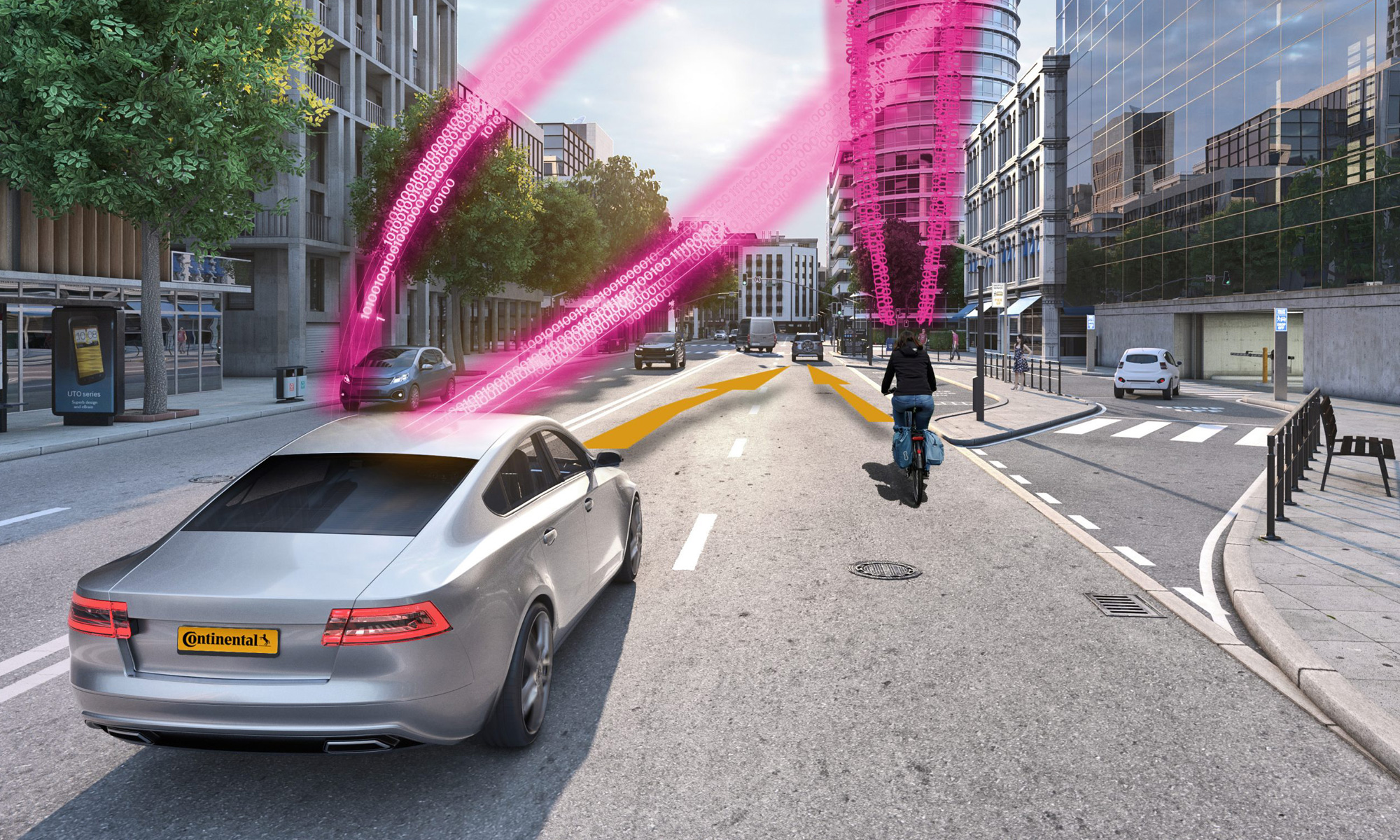
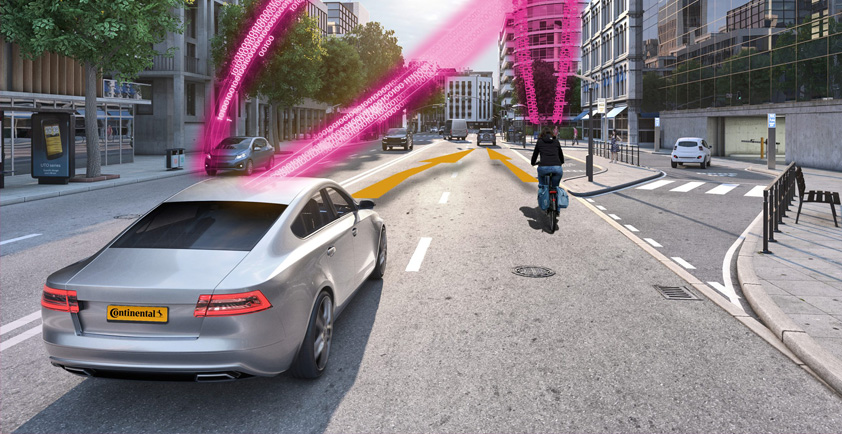
DIGITAL GUARDIAN ANGEL FOR CYCLISTS
>> Continental and Deutsche Telekom develop collision warning system
>> For car, bike, pedelec and scooter riders as well as pedestrians
Continental and Deutsche Telekom are protecting cyclists: The two companies are developing a system that warns of accidents between connected vehicles and cyclists – or other vulnerable road users such as pedelec, scooter riders and pedestrians. The solution calculates the paths taken by cars and bicycles. If they are likely to cross at the same time, the system warns both road users via mobile communications in real-time. Initial road tests have been successful.
"Vulnerable road users in particular are often overlooked in road traffic. What's more, according to the European Road Safety Council, more than 80 percent of accidents between pedestrians or cyclists and motorized vehicles end fatally for the vulnerable road users. Thanks to real-time networking and collision warning, we therefore give cyclists or pedestrians more visibility. In this way, we reduce serious accidents, injuries, and traffic fatalities," says Karsten Michels, Head of Research and Advanced Development at Continental.
"With collision warning, we are equipping cyclists, pedelec and scooter riders with a digital guardian angel," says Oliver Bahns, responsible for Connected Mobility at T-Systems. "The key to this is the high level of connectivity: around 85 percent of the population in Europe uses a smartphone. And more and more cars are connected, too. With our computers in the mobile network, we also ensure extremely short response times."
GPS, Mobile Communications and Cloud Computing
The collision warning system is based on satellite positioning (GPS), acceleration sensors, mobile communications and cloud computing. The car transmits its position and acceleration values to the cloud via mobile communications. The cyclist also sends this information to the cloud via smartphone. It calculates the paths for the next five seconds and sends a warning to the car and the cyclist's end user device if a collision is imminent. To ensure that this information reaches both road users as quickly as possible, the nearest cloud computer in the mobile network to the location of the possible collision is always used. Technicians refer to this as multi-access edge computing.
The partners are further developing the collision warning systems for international use in everyday life and will present the results at the ITS World Congress. The leading trade fair for intelligent transportation systems will be held in Hamburg from 11th to 15th October. The collision warning system is being developed in the Reallabor Hamburg project and is funded by the German Federal Ministry of Transport and Digital Infrastructure.
About Continental
Continental develops ground-breaking technologies and services for the sustainable and connected mobility of people and their goods. Founded in 1871, the technology company offers safe, efficient, intelligent and affordable solutions for vehicles, machines, traffic and transportation. Continental generated sales of €37.7 billion in 2020 and currently employs around 235,000 people in 58 countries and markets. In 2021, the company celebrates its 150th anniversary.
About the RealLabHH
In the Real Lab Hamburg (RealLabHH), the mobility of tomorrow is to be tested in the here and now of a metropolis and, based on this, a blueprint for the digital mobility of the future is to be created. The social debate on digital mobility services is at the center of this in order to provide important insights into which approaches will prove themselves in practice. The planned eleven sub-projects of RealLabHH range from mobility budgets instead of company cars to the creation of a provider-independent mobility platform and solutions for particularly vulnerable participants in road traffic. Under the consortium leadership of Hamburger Hochbahn AG (HOCHBAHN), the continuous and comprehensive involvement of citizens is planned. The results of the RealLabHH will be presented at the ITS World Congress 2021. Supported by the Federal Ministry of Transport and Digital Infrastructure (BMVI), the Free and Hanseatic City of Hamburg will host the world's largest congress for intelligent transport systems and services (ITS), which will take place from October 11 to 15, 2021. The RealLabHH project is based on the initiative of the National Platform Future of Mobility (NPM), runs until the end of 2021 and is funded by the BMVI with around 20.5 million euros.





